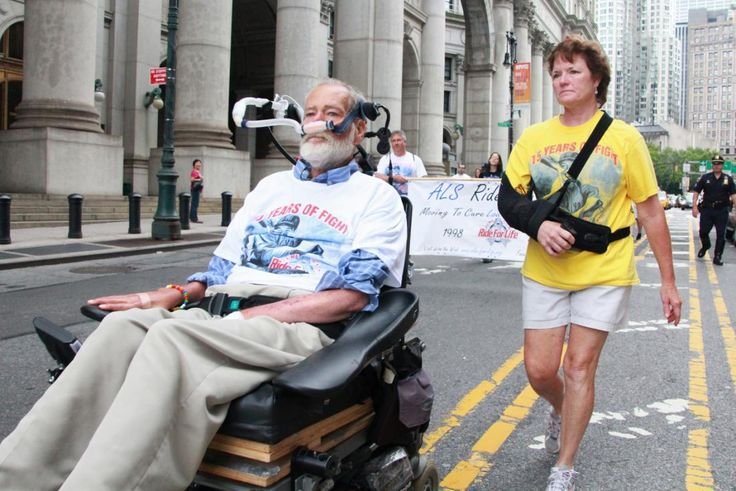
Introduction to Motor Neuron Disorders
What are Motor Neuron Disorders?
Motor Neuron Disorders are a group of conditions that affect the nerves responsible for controlling voluntary muscle movements such as walking, speaking, and breathing. These disorders impact the brain’s ability to communicate with the muscles efficiently, leading to muscle weakness, twitching, and eventually, paralysis. Common motor neuron disorders include Amyotrophic Lateral Sclerosis (ALS), Primary Lateral Sclerosis (PLS), Progressive Muscular Atrophy (PMA), and Spinal Muscular Atrophy (SMA).
Types and Causes of Motor Neuron Disorders
There are different types of motor neuron disorders classified based on the specific neurons affected and the severity of symptoms. ALS, also known as Lou Gehrig’s disease, is one of the most well-known motor neuron disorders, characterized by the degeneration of both upper and lower motor neurons. The exact causes of motor neuron disorders are often unknown, with a combination of genetic and environmental factors believed to play a role in their development. Research into these disorders continues to uncover more about their origins and potential treatment options.
Understanding the Nervous System
The Role of Motor Neurons
Motor neurons play a crucial role in the nervous system by transmitting signals from the brain to the muscles throughout the body. These specialized nerve cells are responsible for controlling voluntary muscle movements like walking, talking, and swallowing. In motor neuron disorders, the communication between motor neurons and muscles is disrupted, leading to a progressive loss of muscle function.
Function of the Central Nervous System
The central nervous system (CNS) consists of the brain and spinal cord and is responsible for processing and transmitting information throughout the body. In the context of motor neuron disorders, the CNS plays a significant role in coordinating motor functions and responses to external stimuli. Damage to the CNS, whether through genetic mutations or environmental factors, can contribute to the development of motor neuron disorders such as ALS, impacting a person’s ability to move and function normally.Understanding the intricate relationship between motor neurons and the central nervous system is vital in comprehending the complexities of motor neuron disorders and exploring potential avenues for treatment and management.
Symptoms and Diagnosis of Motor Neuron Disorders
Early Signs and Symptoms
Motor neuron disorders manifest through various early signs and symptoms that require attention. These may include muscle weakness, twitching, cramps, and even difficulty speaking or swallowing. As these conditions progress, individuals may experience muscle atrophy, stiffness, and eventual paralysis. Recognizing these initial signals is crucial for prompt intervention and management of the disorder.
Diagnostic Tests for Motor Neuron Disorders
Diagnosing motor neuron disorders involves a series of tests and assessments to evaluate nerve function and muscle activity. Electromyography (EMG) measures electrical activity in muscles, helping identify any abnormalities in motor neuron function. Nerve conduction studies assess how well electrical impulses travel along nerves. Additionally, imaging techniques like MRI scans can reveal structural changes in the brain and spinal cord. Combining these diagnostic tools provides healthcare professionals with a comprehensive understanding of the patient’s condition, enabling them to recommend suitable treatment and support options. Early and accurate diagnosis plays a pivotal role in managing motor neuron disorders effectively.
Treatment Options for Motor Neuron Disorders
Medications and Therapies
When it comes to treating motor neuron disorders, medications and therapies can play a crucial role in managing symptoms and improving quality of life. Medications such as riluzole can help slow down the progression of the disease by reducing nerve damage. Physical therapy can aid in maintaining muscle strength and mobility, while occupational therapy can assist in adapting to any limitations in daily activities. Speech therapy may also be beneficial for individuals experiencing difficulties in speaking or swallowing. These interventions, along with supportive care, aim to enhance the overall well-being of patients and alleviate discomfort associated with the disorder.
Surgical Interventions and Experimental Treatments
In some cases, surgical interventions may be considered for motor neuron disorders. Procedures like feeding tube placement or breathing assistance devices can help individuals with swallowing or respiratory issues. Additionally, ongoing research is exploring experimental treatments such as stem cell therapy or gene therapy to target the underlying causes of these disorders. While these approaches are still in the investigational stages, they hold promise for potentially altering the progression of the disease. Collaborating with healthcare providers to explore all available treatment options can lead to a comprehensive care plan tailored to meet individual needs.
Also Read: Understanding Motor Neurone Disease: Causes, Symptoms
Coping with Motor Neuron Disorders
Supportive Care and Lifestyle Modifications | Emotional and Psychological Well-being
When facing motor neuron disorders, coping strategies are essential to help individuals manage the challenges that come with the condition. Supportive care and lifestyle modifications play a vital role in improving the quality of life for those affected. Engaging in regular physical activity suitable for their abilities can help maintain muscle strength and flexibility. Adhering to a balanced diet recommended by healthcare professionals can support overall health and well-being.Emotional and psychological well-being are equally important aspects to consider when coping with motor neuron disorders. Patients may experience a range of emotions, from frustration to anxiety, due to the impact of the disease on their daily life. Seeking support from mental health professionals or joining support groups can provide a safe space to express feelings and connect with others facing similar challenges. Practicing relaxation techniques or mindfulness exercises may also help reduce stress and promote emotional balance during difficult times.By incorporating supportive care, lifestyle modifications, and addressing emotional needs, individuals with motor neuron disorders can enhance their overall quality of life and well-being.
